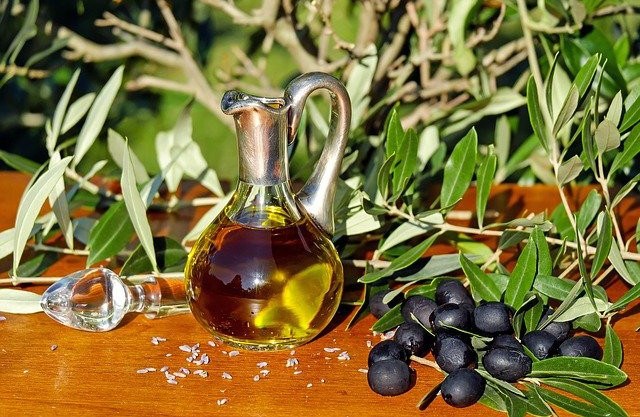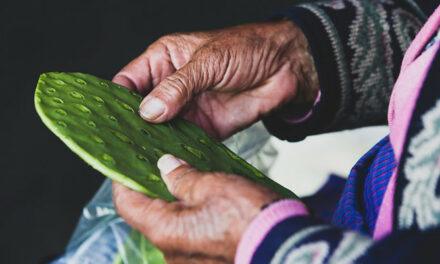Here we dive into diabetes and olive oil to answer the question ‘is olive oil good for diabetics?’. This guide will also answer many other questions helpful for people with diabetes and other diseases.
Olives and olive oil, ancient plant elements, are very significant in many aspects of life. The olive tree and its branches have significance to the religion, as it’s the first plant mentioned in the bible, and it is used as an ointment for priestly offices and kings.
It holds significance in the culinary world, from past till now, as it was one of the main components in ancient Israelites dishes. The wood from the olive tree is also durable, very hard and colorful, making it significant to the woodworkers.
Added to these above significances, olives and olive oil also have health benefits. Thus, what health issue is olive oil good for?
Let’s find out.
Olive and Olive Oil
The Olive plant is an ancient plant of the scientific name, Olea europaea. The sub-tropical, evergreen plant, is seen to grow best in hot, and dry tropical regions, as well as mild winter. It is cultivated in countries of the Mediterranean, Australia, New Zealand, South America and Africa.
The olive tree is one of the most cultivated fruit crops in the world, mostly all cultivated in the Mediterranean region, producing about 95% of the world olives.
The olive tree is cultivated for several reasons;
- for their olive branches, which has spiritual symbolism, or
- for their fruits, commonly called ‘olives’, and their extracted oils.
About 90% of the cultivated olives are used for oil production, and the remaining 10%, used as table olives. Therefore, olives and olive oils are the main reasons for the cultivation of olive tree.
Olive oil is the extracted oil gotten from the olive fruit, olives. It is liquid fat extracted from whole olives.
Olive oils appear to be bright yellow or golden, depending on the extracted process and variety of the olive fruit.
There are many types of olives and olive oils…
Types of Olive Oils
The variety in the characteristics of different olive oils suggests that olive oil is classified. Olive oil is classified into different families, and each family is classified thus.
1. Virgin olive oils
Virgin Olive oils are the class of olive oils that are most natural. They are produced by mechanical extraction processes and without the use of any chemical products.
The olive oils under this class include:
a. Extra virgin oil
b. Virgin olive oil
c. Lampante virgin olive oil.
The above virgin oils are arranged according to their quality, as extra virgin oil has a higher quality level type.
2. Chemically-produced olive oils
The only olive oil in this class is the raw pomace olive oil.
This olive oil is extracted using a chemical solvent. This kind of oil cannot be marketed without being refined.
3. Refined olive oil
This is a family of refined oils. Among the virgin oils, lampante virgin oil needs refining, thus producing a member of the refined class, refined olive oil.
Also, the chemically-produced oil, raw pomace olive oil refined will produce refined Pomace olive oil.
Nutritional Content Of Olive Oil
Olive oil is known to be one of the healthiest consumable oils. With that said, what’s contained in olive oil?
1. Monounsaturated fatty acids
Medical research has shown that olive oil contains monounsaturated fatty acids as its main fatty content.
Monounsaturated fatty acid is a healthy type of fat, which reduces bad cholesterols in the blood stream, thus preventing arteriosclerosis and risk of heart diseases.
2. Antioxidants
The purely natural olive oils, those in the family of virgin olive oils, provide a high content of antioxidants.
The high antioxidant is good for strengthening the immune system and preventing the damaging of many body cells.
Some of the antioxidants are: polyphenols, vitamins E and K, chlorophyll and carotenoids.
3. Anti-inflammatory agents
Olive oil is anti-inflammatory due to some agents like oleocanthal, which prevents both internal and external inflammation.
Above properties of the olive oil results in many health benefits for both people with diabetes and others.
Olive Oil Nutritional Benefits
According to nutrition, 1 teaspoon of olive oil, which contains about 13.5grams of olive oil provides,
- 119 calories
- 13.5g of fat, of which monounsaturated fat forms its majority
- 1.9mg of Vit E
- 8.13mcg of Vit K
Calcium and potassium as well, tocopherols, polyphenols, phytosterols, and many other antioxidants.
The above elements are what you stand to gain in the consumption of just a teaspoon of olive oil.
More so, the consumption of olive oil, has been associated with the following health benefits.
1. Prevent cardiovascular diseases
Extra virgin olive oil offers protection from cardiovascular disease.
A recent study has confirmed its role in the protection against all sorts of diseases, including cardiovascular diseases and atherosclerosis, as well as stroke. According to the research, this protection offered by the extra virgin olive oil is a result of its polyphenols contents.
2. Reduce cancer risk
Taking olive oil is also associated with a reduced risk of cancer. The antioxidants present in olive oil may protect the body from genetic changes, inflammation and oxidation, all changes which results in cancer.
A few studies have shown that elements found in olive oil, reduce one’s risk of breast cancer. Some other studies suggested the prevention of colorectal cancer.
3. Reduce depression risk
The food we take in can affect one’s mental health positively or negatively. One good food for mental health balance is olive oil.
Olive oil protects you from falling into depression by protecting the central nervous system, and preventing anxiety, a major cause of depression.
This is proven by a study performed on rodents, stating the anti-depression tendencies of olive oils.
4. Prevent Alzheimer’s disease
An article published in 2016 reports that scientists proposed using extra virgin olive oil, as an important way of preventing the onset of Alzheimer’s disease.
Animal model experiments done by these few scientists have shown that extra virgin olive oil, has positive effects on animal model Alzheimer’s disease.
5. Prevent inflammatory bowel disease
Inflammatory bowel disease is an inflammatory disease associated with the digestive tract. People with inflammatory bowel diseases, like those with Crohn’s or ulcerative colitis, can manage their disease by using extra virgin olive oil.
As, the anti-inflammatory agents in olive oils, like phenols, will boost the immunity of their gut and intestine.
6. Prevent liver damage
Liver damage can be caused due to chemical reactions occurring in the liver, like oxidative stress, inflammation or genetic changes.
The anti-inflammatory agents, like the phenolic agents of olive oil, is effective in reducing the risk of liver damage.
7. Prevent obesity
Olive oil is sure for weight loss management.
Its effectiveness in reducing weight in the obese is attributed to its low content of saturated fat. Its higher monounsaturated fat assists in weight loss goals.
8. Prevent high blood pressure
One of the ways extra virgin oil prevents cardiovascular disease is by its ability to reduce the risk of high blood pressure. Its effect on blood pressure is owed to its high antioxidant levels, which also help in preventing the risk of other metabolic syndromes.
Now, let’s turn on to olive oil and diabetes…
Is Olive Oils Good For Diabetes?
Several diseases are proved to be prevented by extra virgin oil from the above but diabetes. Can we say olive oil is good for diabetes? And what researches support our answers?
Firstly, who is a diabetic and what is the condition of diabetes?
A diabetic is one that has been diagnosed with diabetes, either type 1 or type 2 diabetes. A diabetic has an unstable blood sugar level, characterized by a frequent rise in blood sugar level. So thus, they have a high blood sugar level, of which the effect of this is dangerous to their health.
Diabetes, especially Type 1, has no cure, but can be effectively managed by lifestyle changes, good food and exercise. Some food choices are bad for diabetics, and others are good for them.
Is olive oil good for diabetes? Yes, according to some research and studies, highlighted below
- Olive oil stabilizes blood sugar level
Olive oil added to meals help in stabilizing blood sugar level, thus, reducing the sudden spikes in blood sugar which is harmful to several organs in the body.
- Olive oil reduces the risk of developing type 2 diabetes
Consuming olive oil has overall effects in improving health, and reducing the risk of several diseases, primarily type 2 diabetes.
- Olive oil reduces oxidative stress and inflammation
Oxidative stress is a risk factor to diabetes, as well as inflammation. As they both can affect the pancreas, an organ that plays an important role in regulating blood sugar levels. The intake of olive oil reduces both.
How Would Olive Oils Effect Blood Sugar Levels?
People with diabetes constantly have a high fasting blood sugar level. This is to say that in between meals, diabetics have a high blood sugar level. This high blood sugar level is caused by the body’s inability to use sugar in food for growth and work.
In several ways, olive oil has proven to be effective in improving the condition of a diabetic. Several research have shown that olive oil has effects on the blood sugar level, by the following ways:
1. Improved insulin production
One of the ways extra virgin olive oil reduce high fasting blood sugar level is by increasing insulin production.
Insulin is the enzyme of the body that helps in the use of sugar from the blood, thereby stabilizing blood sugar level. When insulin production is deficient, it affects the blood sugar level, thus leading to diabetes.
Research has shown that olive oil increases insulin production by increasing the levels of another enzyme in the gastrointestinal tract, incretins, which stimulates insulin production.
2. Reduce post-prandial blood sugar level
Extra virgin olive oil can reduce postprandial blood sugar levels by about 20mg/dl. This effect is brought about by oleuropein found in the oil.
3. Reduce body’s glycemic response
When extra virgin olive oil is eaten with a high glycemic meal by a person with diabetes, the oil reduces the body’s glycemic response to such meal, thereby acting as a buffer, preventing high blood sugar spikes.
Best Type Of Olive Oils For Diabetics?
Not all types of olive oil provide effects to high blood sugar levels, as mentioned above. The best olive oil for this job is extra virgin olive oil (EVOO).
Some research considers extra virgin olive oil, a remedied cure for diabetes.
What Makes The Extra Virgin Olive Oil The Best For Diabetes?
Extra virgin oil is the healthiest type of olive oil produced. Its method of extraction, the natural method, accounts for its standard purity, richness and retained taste and smell of the olive fruits.
The antioxidants, fats and anti-inflammatory agents remain preserved in this oil, as no chemical solvent is used in its process of extraction.
Research shows that extra virgin olive oil not only reduces blood sugar levels by the above-listed methods, but also reduces cholesterol levels, which is associated with diabetes.
How Much Should Olive Oil Diabetics Use?
Based on the newfound knowledge that olive oil, extra virgin is good for diabetics, the diets of any person with diabetes
should definitely contain olive oil. But how much should be taken daily? What is the best dosage recommended being taken by a person with diabetes?
According to research, a dosage of 1-2 teaspoons of extra virgin olive oil was found to be effective to reap its health benefits for people with diabetes. Thus, on a daily basis, a diabetic should consume nothing short of 1-2 teaspoons of extra virgin olive oil.
How to Use Olive Oil in Cooking?
Olive oil, just like most oil, is versatile in the kitchen and can be used in any and every recipe. Some of the most common and easy ways of cooking with olive oil are:
- Sprinkle olive oil over a salad and mix into salad dressing
- Add to marinades or sauce for meat, fish, poultry, vegetables. As olive oil usually enters into the first few layers of food being marinated
- Add at the end of cooking to a dish for a gust of flavor
- Sprinkle over cooked pasta
- Use as a bread dip
Made by pouring a little olive oil into a small side dish and adding small splashes of vinegar.
- Replace butter with olive oil in mashed potatoes, or when taking bread.
- Use olive oil in your Sause
- Stir-fry or panfry with olive oil
- Bake with olive oil.
Is Olive Oils The Best For Diabetics?
Olive oil is considered to be the best and healthiest oil for people with all kinds of ailments, including the diabetic. It is rich in monounsaturated fatty acid, high in antioxidants and high in anti-inflammatory substances, all good qualities which make it the best oil for diabetics.
A recent study found that people with diabetes, constantly consuming the Mediterranean diet, made exclusively with extra virgin olive oil, have a reduced fasting blood sugar level.
Another study has deemed extra virgin olive oil a strategic cure to diabetes.
So, therefore, extra virgin olive oil is considered the best and healthiest oil consumable to diabetics.
What Are The Other Oils Diabetics May Use? The Better And The Worse
Other than olive oil, there are a few other oils suitable for use by people with diabetes. When there’s the unavailability of the oil, these alternatives will suffice.
They include palm oil or canola oil.
Among these alternatives though, which one is better used or the worst for the type 2 diabetics?
Palm Oil vs Canola Oil
The palm oil referred to here is refined palm oil, RPO. Palm oil, just like olive oil is healthy, and rich in vitamins
and antioxidants.
Canola oil, is rich in unsaturated fatty acids, good for cholesterol levels, but both oils, contain vitamins and antioxidants that make it healthy for use by diabetics, compared to vegetable oils.
Which Is Better Or Worse For Diabetics?
Among both oils, red palm oil is the best for type 2 diabetics. This is because it is much richer in antioxidants. The antioxidants that appropriately reduce blood sugar levels in diabetics and pre-diabetics.
Studies have shown how improving palm oil can be to insulin resistance. Its intake in healthy menus will also prevent both acute and chronic diseases.
But canola oil is considered better for heart and cardiovascular diseases instead of diabetes. This is because of its fat content, as compared to that in palm oil.
The saturated fat content of canola oil is merely 7%, low compared to that contained in palm oil. Canola oil has an unsaturated fat content of 92%, bringing this oil to the top list of cooking oils for the heart.
The acids of these unsaturated fats provide protection against heart disease and not just heart disease, type-2 diabetes.
Conclusion
In line with several studies that have been carried out, even those on animal models, it is clear that olive oil is one oil that must be consumed regularly to maintain health, to see improvement in the sick, and to achieve a better health status.
People with diabetes will benefit heavily from extra virgin olive oil consumption, as it is effective in the maintenance of blood sugar levels.















